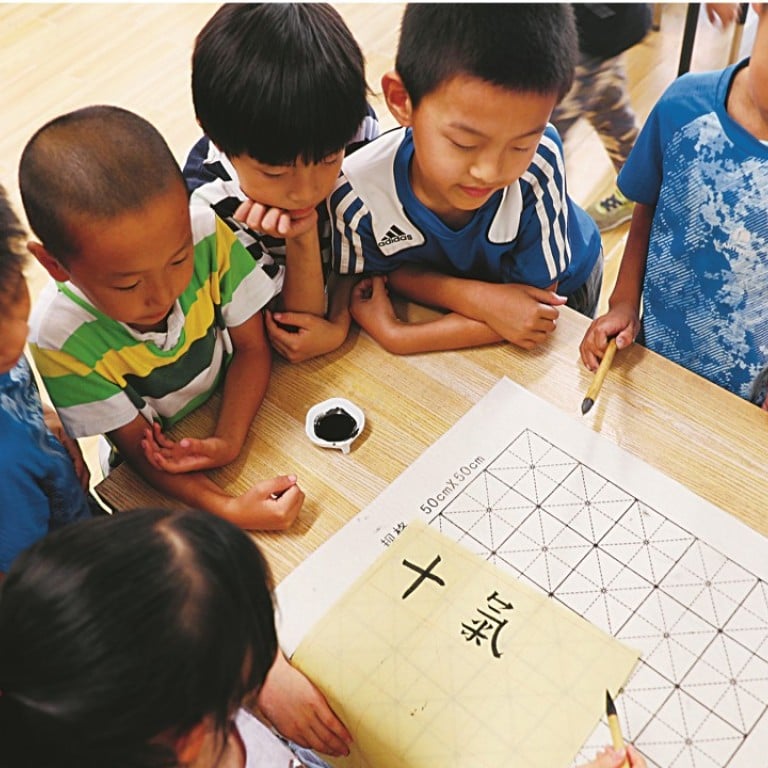
The Chinese parents who homeschool their kids, and why they reject public education
Like homeschoolers elsewhere, parents in China don’t trust a rigid public school system to give their kids a rounded children and foster their creativity; some Beijing parents have gone a step further and fund an alternative school
Ocean Tsang, 10, who lives in Beijing, has a passion for the traditional Chinese storytelling art of pingshu. He can regale his parents with tales like a seasoned raconteur.
His father, Tsang Tsz-kin, a dance teacher from Hong Kong, plans to enrol him in the National Academy of Chinese Theatre Arts in September.
Most Hong Kong parents would prefer their children to enter a prestigious university, then land a job in finance, medicine or engineering, and would balk at the thought or their offspring pursuing such an unusual career path. Tsang, however, says it’s more important that his children pursue an avenue of study that they love.
That is one of the reasons Tsang decided to homeschool Ocean and his little sister, while teaching modern dance part time. He says it has helped him to identify Ocean’s real interests.
China looks to school kids to win the global AI race
“People who love doing their jobs will think nothing of working overtime,” says Tsang, who has found a pingshu teacher who gives Ocean one-on-one lessons. “He watches online pingshu performances every day. He likes reading the stories aloud with facial expressions, hand movements and vocal intonations. He could be a DJ when he grows up,” Tsang says.
The youngster has 45-minute classes in Chinese, English, maths and general knowledge every day with his father and private tutors, and an arts teacher comes to their home from time to time. Social and extracurricular activities include excursions to museums in the Chinese capital, and gatherings with others who are home-schooled.
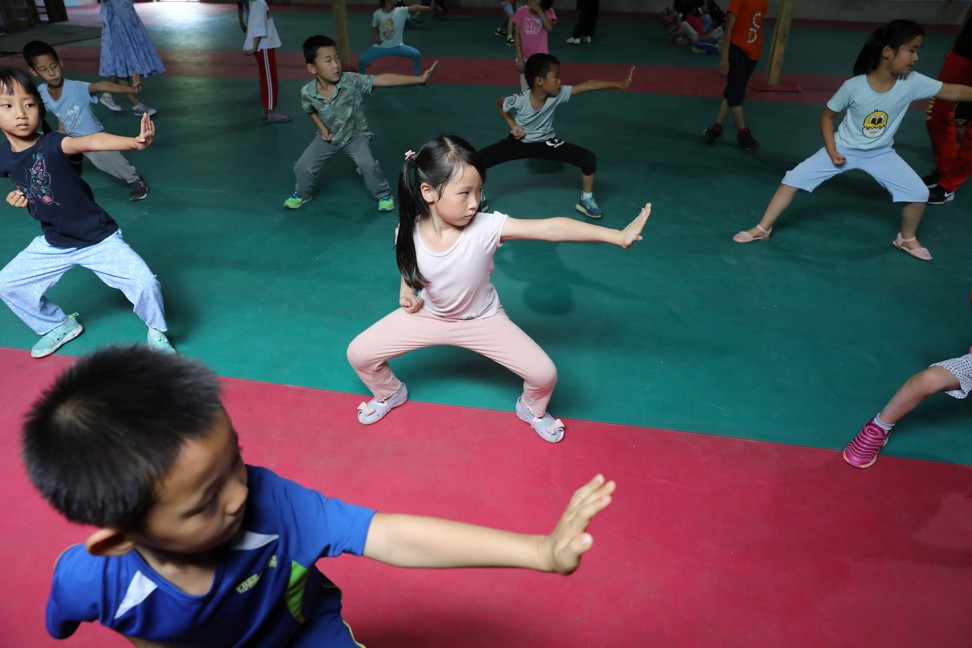
“Ocean knows both traditional and simplified Chinese characters. We have bought an online subscription for lessons offered by [home-based virtual classroom] 51Talk for 20,000 yuan (US$3,000) a year. He has virtual one-to-one lessons with teachers in America and Southeast Asia, and has to do assignments,” Tsang says.
There are no official statistics on the number of parents home-schooling their children in China, and unofficial figures vary widely. The latest figures released by 21st Century Education Research Institute, a think tank, estimated there were 6,000 children being home-schooled in the country in 2016, up from 2,000 in 2013. However the WeChat account of China Home-schooling – an online alliance of educators and parents – has more than 23,000 members.
The growing interest in home schooling prompted the Education Ministry to release a statement last year reminding parents that “it’s forbidden to conduct home-schooling education to replace the [nine years of] compulsory education uniformly enforced across the country”.
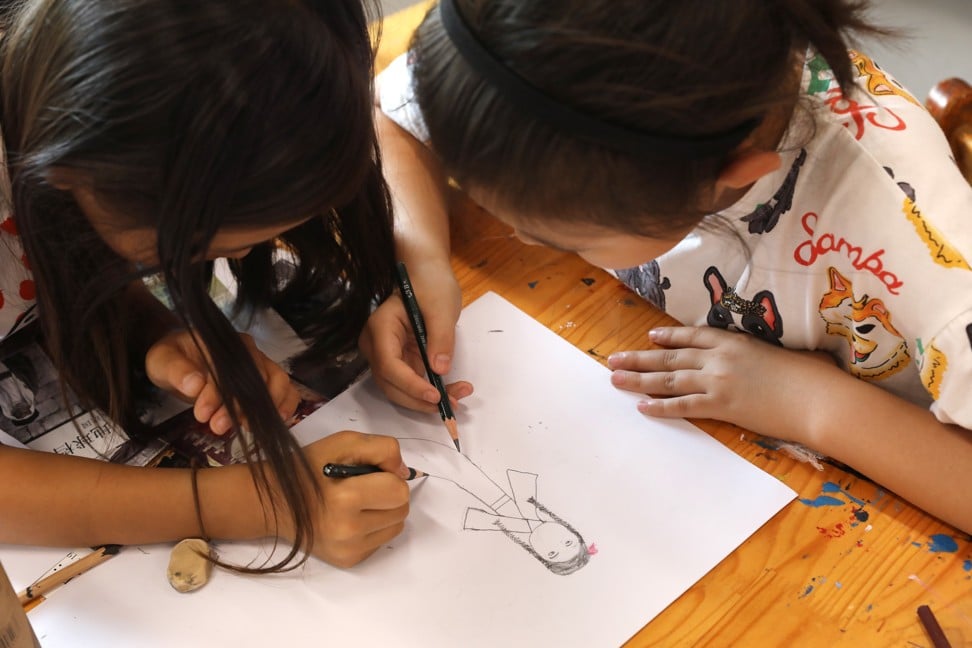
Parents who homeschool their children say, however, that China’s vast size means those determined to take their children out of schools can to do so without government interference.
Ocean’s mother, Cissy Ji, from Qingdao, in the eastern province of Shandong, says Ocean’s hukou – his household registration, which governs where he can access public services – is in her hometown because he was born there.
“He studied kindergarten in Qingdao and later primary school [until he finished the first semester of Primary Three] in Shenzhen [a city in southern China bordering Hong Kong] after we moved there. Although it’s against the law not to send your children to school in China, it’s difficult to trace such cases because [people move around the country],” Ji says.
Many proponents of home-schooling in China point out that not sending their children to public schools frees them from rote learning and mind-numbing indoctrination in the classroom.
Will robots replace teachers in China’s schools?
As for Tsang, he says traditional schools do not suit Ocean’s personality. “He doesn’t like to follow what the teachers say. They used to complain about him and we were often summoned to the school [in Shenzhen],” he says.
He himself attended a public school and disliked how students had to listen to readings from the diaries of late Chinese premier Zhou Enlai.
International schools are an option in Beijing, but they are even more expensive than those in Hong Kong, Tsang says. The students are almost exclusively Chinese and follow the same drilling and exam-oriented approach as public schools, he says.
Education business entrepreneur Zhang Qiaofeng is another parent who favours home-schooling, and has educated his son Hunter at home since 2012.
Children suffer a lot in public schools. Including time for homework, they can work for up to 11 hours a day
“I was very disappointed by the public school system. I removed my child from his [Beijing] school three weeks into Primary One. Children suffer a lot in public schools,” he says, referring to their strict discipline and lack of leisure time. “Including time for homework, they can work for up to 11 hours a day,” he says.
The Peking University physics and sociology graduate says Chinese teaching materials promote indoctrination, which is bad for the development of critical-thinking skills.
“They don’t present history in an impartial way. I want Hunter to learn comprehensive history from reliable sources like The Story of Civilisation by Will Durant. You have to know about history to develop independent thinking,” he says.
Zhang relocated from Beijing to the southeastern province of Fujian two years ago to develop his educational business. He set up a tutorial centre in his village home in the city of Putian, where children join summer camps and other learning activities. The centre also runs a virtual classroom, with more than 200 students taking his online maths lessons.
“Hunter likes computers. He helps me to make and edit video lessons and put them online. I don’t have any interest in Chinese universities. When he gets to the age of about 15, we will go back to Beijing so that he can sit SAT exams,” he says, referring to the tests students take when applying to study at US universities.
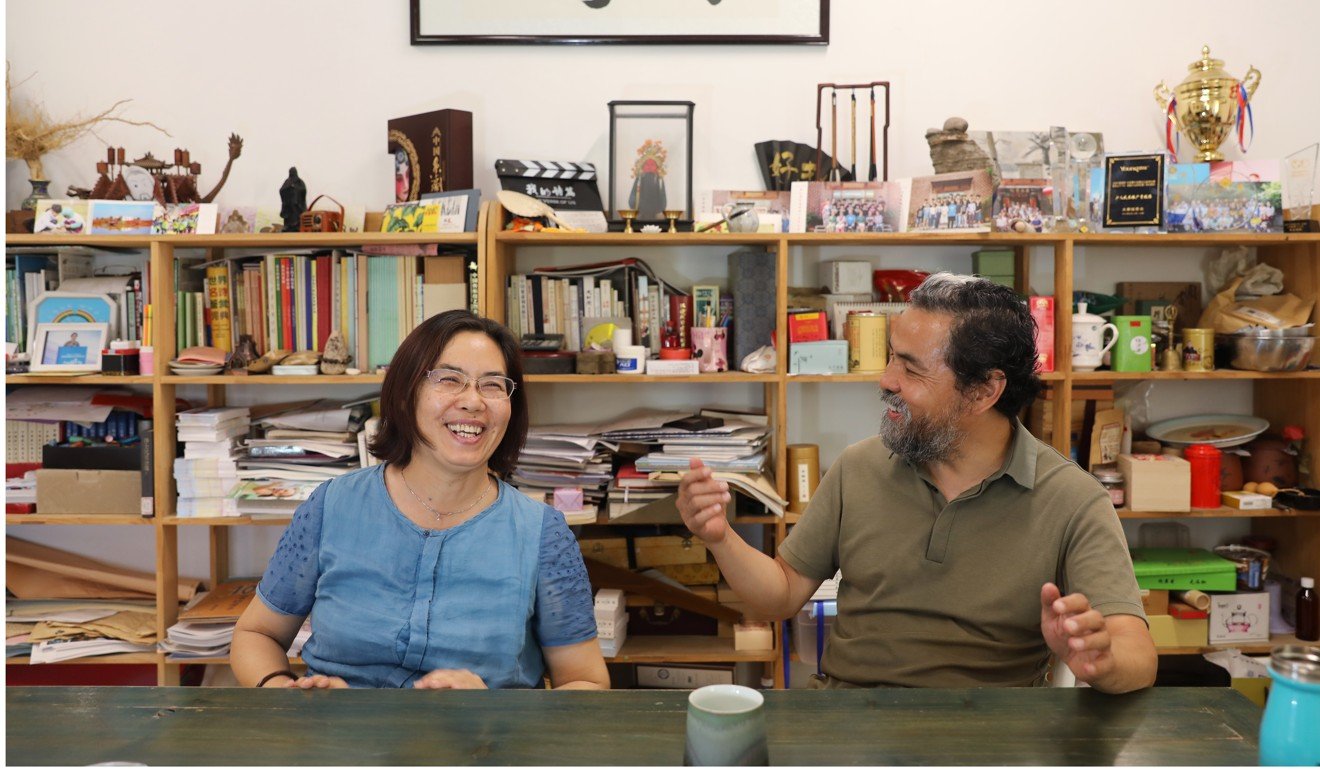
Back in 2012, eager to promote alternative education among Beijing parents, Zhang rented an 80-square-metre apartment and converted it into a classroom for primary-school-age children. He charged annual fees of 60,000 yuan, which covered tuition, teaching materials, meals, special interest classes and excursions. But the venture failed, he says, because a couple of students he admitted had severe behavioural problems.
“Parents put them in my school because they couldn’t fit in at traditional schools. It was very tiring to teach those students.”
Zhang Dongqing and Wang Xiaofeng have been luckier. The couple’s home-schooling education experiment in the capital has thrived. Their labour of love – Ririxin School, in Beijing’s Changping district – has more than 300 students and 110 staff. The couple opened it in 2006 when their youngest daughter was due to enter primary school, and it was intended as a vehicle to homeschool her. Zhang, a former university lecturer, says the school began to grow after a series of gatherings of like-minded parents who wanted to explore an alternative to traditional education.
The Eslite effect: China bookshops offer space to relax and read
“Eventually, four parents pitched in a total of 40,000 yuan and we rented a house with three bedrooms and a living room for classrooms,” she says.
The school has since relocated to new, 3,000-square-metre premises with a large indoor sports hall and outdoor space big enough to be used for organic farming. With 80 teachers catering to the more than 300 students, students benefit from a great deal of personal guidance and instruction.
Zhang insists that home-schooling has to be conducted in a school-like setting. “Even though the parents are professionals, with master’s or doctoral degrees, they don’t understand children’s education. Students have to nurture a respectful attitude towards teachers who are strangers to them [in the beginning].”
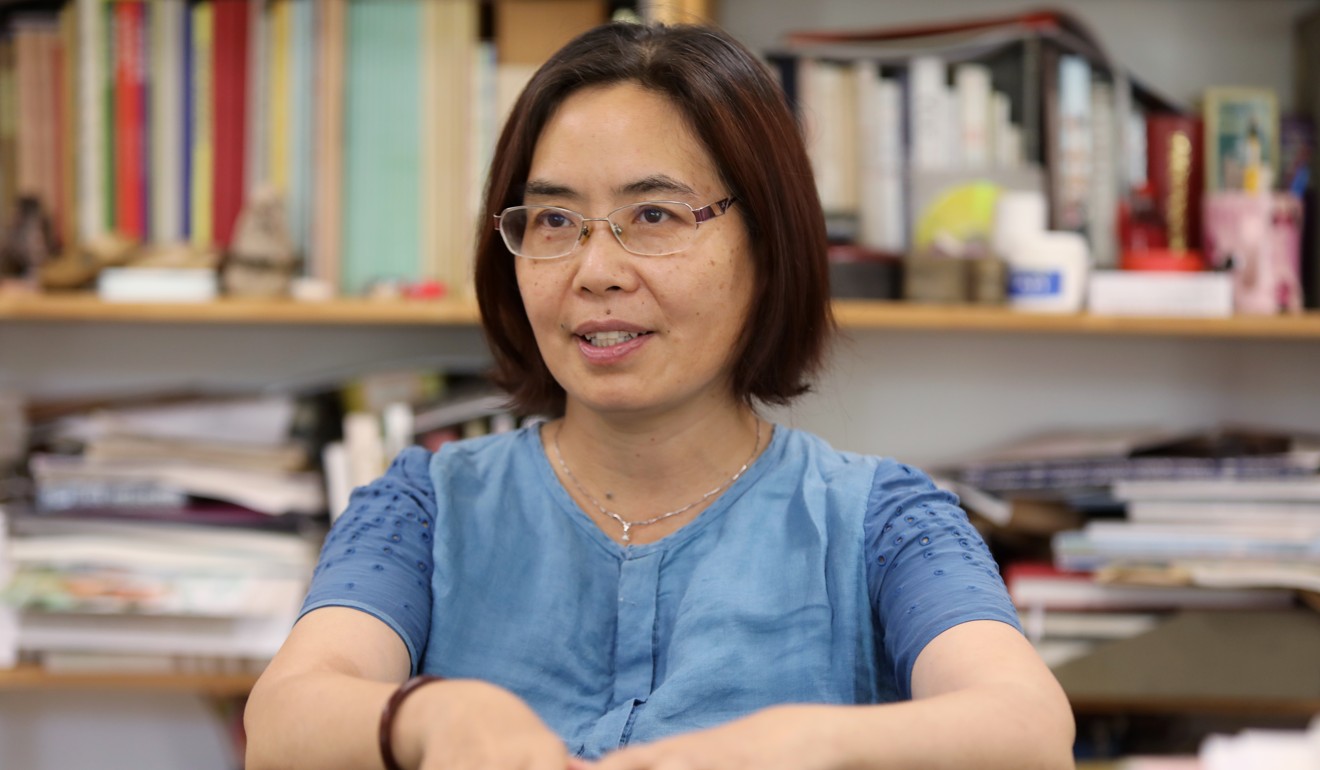
The school, which charges 40,000 to 80,000 yuan a year in tuition fees, runs classes from nursery to junior secondary level, and eventually plans to offer through-train schooling that will take students to the national university entrance exam, or gaokao. Although the school holds exams, Zhang says they do not promote a competitive approach to rating students, as public schools do.
“We have had three batches of primary graduates [who finished their whole primary schooling]. Many of them went on to good secondary schools that are difficult to enter,” Zhang says.
She adds that she wants to nurture inquisitive students rather than restrict them with a rigid educational approach that encourages conformity.
Parents vying for school places told to get DNA tests for children
“My daughter is sensitive, introverted and shy. So she is easily suppressed and she was afraid to do many things [when she studied in a private nursery school]. She is now studying in a senior high school in the US.
“The state of education in China is backward. Chinese students must select the arts stream if they are not good in science subjects. China segregates students into arts or science streams early on, while US schools offer much more flexibility to enable students to can grow according to their own interests, wishes and talents,” Zhang says.

